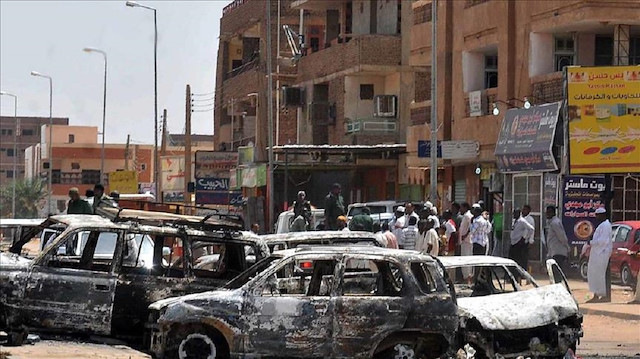
Demonstrators slam deteriorating economic conditions, chronic shortages of bread, fuel and cash
At least 19 people have been killed and 406 injured in Sudan since protests began on Dec. 19 over the country’s deteriorating economy, the official SUNA news agency reported Thursday.
Protesters have been railing against chronic shortages of basic necessities, including bread and fuel.
Minister of Information, Communications and Information Technology Bushara Guma Aro said at a press conference the protests were initially peaceful and the police did not intervene, but they gradually turned violent.
The dead include three in Northern State, five in Nahral-Neil State, six in Gedarif State, three in White Nile State and two members of the security forces, Aro told SUNA.
Among the injured, 219 were protesters and 187 were security forces, he added.
He stressed that some of the casualties had resulted from confrontations between shop owners and protestors who attempted to loot their properties.
Aro also noted that the security forces have arrested 107 elements belonging to armed movements.
He said the government has taken measures to overcome the crisis, adding that after Jan. 15, the shortages will be resolved.
He called on those demanding a change in government, saying “the way to regime change is through the ballot box".
The opposition in Sudan has called through social media for wide-ranging demonstrations throughout the country following Friday prayers.
On Tuesday, Sudanese security forces dispersed thousands of protesters who had gathered in central Khartoum to demand the resignation of President Omar al-Bashir.
Al-Bashir, who has been in power since 1989, pledged Monday to carry out economic reforms amid the street protests.
A nation of 40 million people, Sudan has struggled to recover from the loss of three quarters of its oil output -- its main source of foreign currency -- when South Sudan seceded in 2011.
The U.S. began imposing sanctions on Sudan in 1997, including a trade embargo, over human rights violations and terrorism concerns but pledged to lift them in January.


